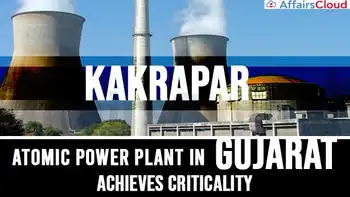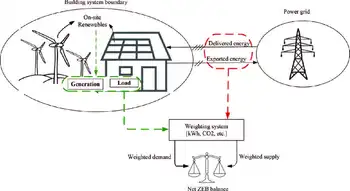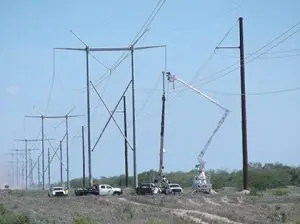E.ON proposes carbon capture pipeline network
KENT, ENGLAND - The controversial Kingsnorth coal-fired plant in Kent, England, could become the hub of a carbon capture and storage (CCS) pipeline network, according to a report submitted by plant owner E.ON AG.
The company's environmental scoping report outlines a carbon capture pipeline that could see the 1,940-megawatt (MW) Kingsnorth plant sitting at the centre of a cluster of carbon capture projects in the Thames region. The pipeline will be capable of transporting 24 million tonnes of CO2 each year to storage sites under the North Sea. The report comes as speculation mounts that the government is set to announce financial support of 'tens of millions of pounds' to move forward the CCS projects of both E.ON and ScottishPower.
E.ON envisages other CCS projects feeding into its network that will be capable of accommodating the CO2 emissions from two Kingsnorth-sized coal-fired power stations and three gas-fired combined heat and power (CHP) stations. Last year, E.ON shelved plans to update the Kingsnorth coal-fired plant with two new 800-MW units, a project that was estimated to be worth £1.5 billion (US $2.4 billion).
Ed Walker, E.ON's project development manager, said: "Far from being just about one project, we believe that Kingsnorth has an exciting role to play as a gateway to unlocking the South East energy industry's potential to decarbonize, something that will become increasingly important as we make the move to a low-carbon future."
He added: "We believe that our plans for Kingsnorth represent the best opportunity to provide industrial-scale evidence of the viability of CCS and the crucial role it could play in meeting the UK's future energy needs. Today's announcement is the next stage of this continuing process. As we have done at every stage, we'll be working closely with local communities across the Hoo Peninsula to update them on our plans and to take their views on board."
The pipeline will travel across the Hoo Peninsula and then be placed in a trench on the seabed taking it to the depleted North Sea gas fields for storage. E.ON has submitted its report to Medway Council as part of a final pipeline planning application that will be submitted by the end of the year.
According to recent reports in the Financial Times, the government is on the brink of announcing new funding support to help E.ON and ScottishPower create more detailed plans for scaling up their CCS pilot projects. Tests at ScottishPower's 1-MW CCS pilot plant at the 2,304-MW Longannet coal-fired plant in Scotland were completed successfully last October.
The paper claims both companies will get funding to accelerate the projects to commercial scale. These are the only two projects left competing for government funding of £1 billion (US $1.5 billion) to create commercial-scale CCS plants by 2020. There is the possibility that the government will split the funding between both projects, as it has already stated its intention to have between one and four full-scale CCS projects active by 2020.
Related News

India’s Kakrapur 3 achieves criticality
DELHI - Unit 3 of India’s Kakrapar nuclear plant in Gujarat achieved criticality on 22 July. It is India’s first indigenously designed 700MWe pressurised heavy water reactor (PHWR) to achieve this milestone.
Prime Minister Narendra Modi congratulated nuclear scientists, saying the reactor is a shining example of the 'Make in India' campaign and a trailblazer for many such future achievements.
India developed its own nuclear power generation technology as it faced sanctions from the international community following its first nuclear weapons test in in 1974. It has not signed the Nuclear Non-Proliferation Treaty. India has developed a three-stage nuclear programme based on…




